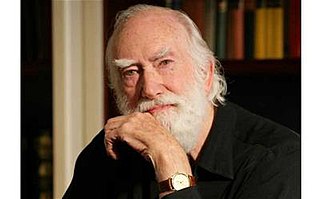A Quote by Tom Tomorrow
My cartoons appear in newspapers, which are full of words, but there's something about having it in this little box that confounds people's expectations.
Related Quotes
I like that cartoons are now not only animated drawings, they are a way of doing something: 'That song sounds very cartoony', or 'He has a cartoon face'. Like the word 'poetic', which usually means something different than a poem. But most of all cartoons are comforting, that's the real reason I need them.
Writing well isn't just a question of winsome expression, but of having found something big and true to say and having found the right words to say it in, of having seen something large and having found the right words to say it small, small enough to enter an individual mind so that the strong ideas of what the words are saying sound like sweet reason.
They are born, put in a box; they go home to live in a box; they study by ticking boxes; they go to what is called "work" in a box, where they sit in their cubicle box; they drive to the grocery store in a box to buy food in a box; they talk about thinking "outside the box"; and when they die they are put in a box.
































